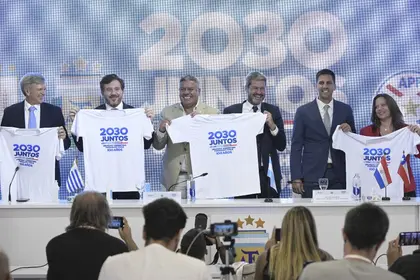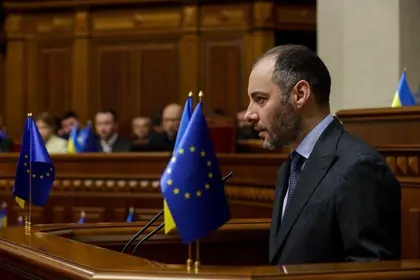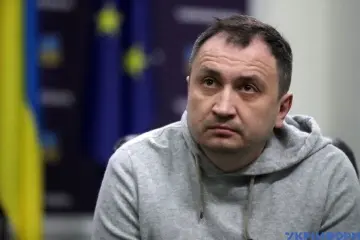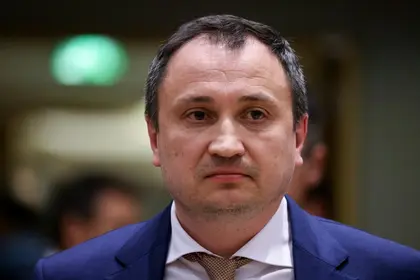Since the full-scale invasion of Ukraine began in February of last year, Ukraine has been given a place of honor at numerous global events as the West has united to support the nation at war.
However, one place where Ukraine will not be getting VIP treatment is in global football (or soccer, for North Americans).
JOIN US ON TELEGRAM
Follow our coverage of the war on the @Kyivpost_official.
Earlier this month, Spain and Portugal disappointed many by turning their back on Ukraine in its bid to be considered and joint hosts of the 2030 Men’s World Cup. Instead, the two Iberian countries backed Morocco. Groups of nations combining to host the tournament has become a common practice. South Korea and Japan hosted the 2002 tournament. In 2026 the U.S., Canada and Mexico will host it. Other joint bids for 2020 include Greece, Egypt, and Saudi Arabia, as well as the South American proposal of Uruguay, Argentina, Paraguay and Chile.
Ukrainian fans have been wondering why their country was left out this time around. Suspicions surrounding the Ukrainian Association of Football (UAF) have led many to assume these “allies” are in fact doing Kyiv a favor by not drawing attention to its football regulators.
The president of the UAF, Andriy Pavelko, was recently indicted for corruption. At the time, the Ukrainian General Prosecutor’s Office (GPO) said that, “According to the investigation, when purchasing equipment for the construction of a plant for the production of artificial football pitches, UAF officials embezzled Hr.26.5 million ($720,000). They later laundered some of those funds.”
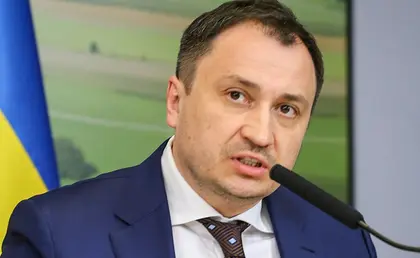
Ukrainian Minister Detained Over Suspected Corruption: Prosecutors
Dnipro native Pavelko, a former parliamentarian, has been under investigation by international football authorities since 2020 for accusations of having received millions of dollars illicitly. He has denied the allegations.
Pavelko, who is out of jail on a bond of Hr.9.9 million ($270,000), is seeking to be elected for the leadership of UEFA next month. Though not meeting all of the requirements and considered to have virtually no chance of winning, the position would guarantee Pavelko immunity from prosecution while holding the leadership – something that would be unlikely to improve the perception of Ukrainian corruption
International football itself is no stranger to accusations of corruption. The New York Times wrote this past December that U.S. law prosecutors had “put things in black and white” due to the fact that “for nearly a decade, Russia and Qatar have been suspected of buying votes to win hosting rights for the 2018 and 2022 World Cups.” American authorities have targeted dozens of people with criminal investigations and indictments.
Last December, the homes and offices of European members of parliament were searched because of the investigations into alleged bribes that were given to award Qatar with the 2022 World Cup. The investigations, still ongoing, found large sums of cash in the houses and hotel rooms associated with the elected officials. Charges have already been filed against several suspects.
Ultimately Spain and Portugal decided to drop Ukraine. The rationale for the decision is presumably to avoid bringing international attention to “Ukrainian corruption,” a topic that many fear would be detrimental to Kyiv’s international receipt of goodwill. Otherwise, it is quite simply to keep from being tarnished with any untoward activity on the part of Ukraine’s football association.
Morocco, the beneficiary of this new configuration with Spain and Portugal, has not said anything publicly about Ukraine since King Mohammed the VI, the country’s leader, made a public statement on March 14 announcing “that the Kingdom of Morocco has decided, together with Spain and Portugal, to present a joint bid to host the 2030 World Cup.”
Neither FIFA (International Association Football Federation) nor UEFA (Union of European Football Associations) nor Pavelko have responded to requests by Kyiv Post for comment.
You can also highlight the text and press Ctrl + Enter


